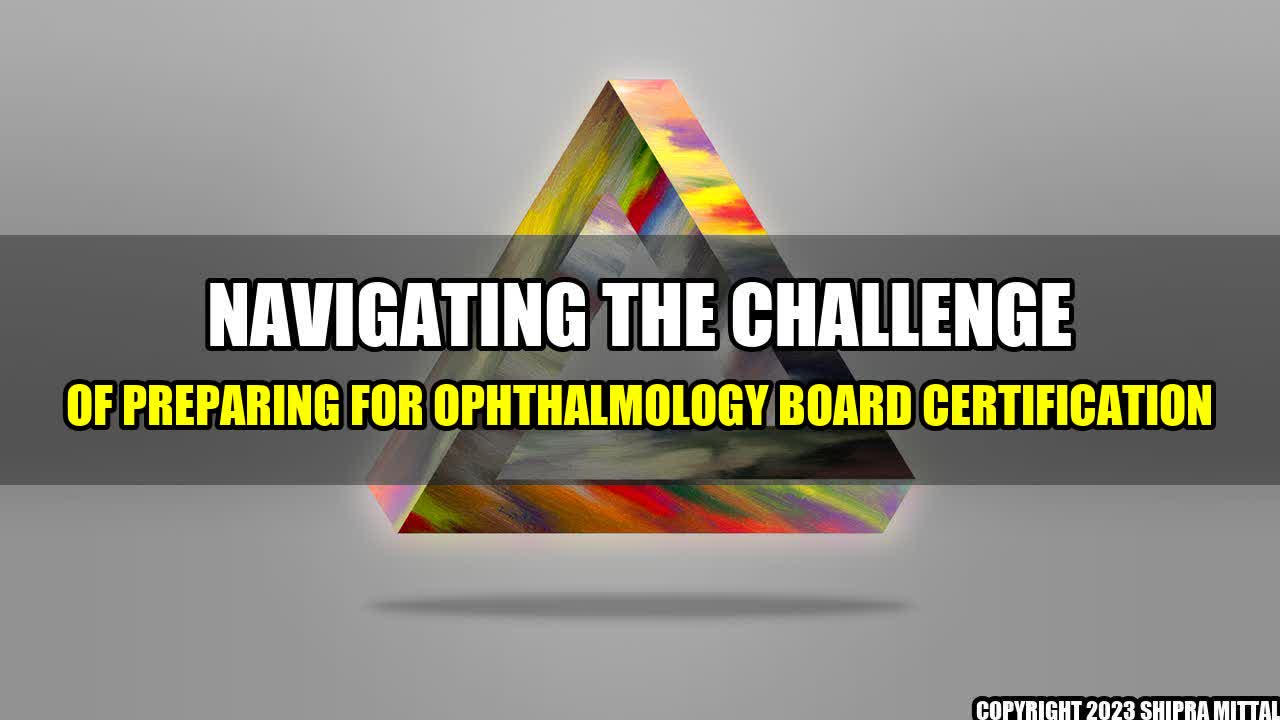
When I decided to pursue the ophthalmology board certification, I experienced a mix of emotions - excitement, determination, but also some anxiety and uncertainty about the journey ahead. I knew it was going to be a challenging process, but what I didn't account for was the scarcity of available resources to guide me.
Despite the abundance of medical books and journals, it wasn't easy to find specific resources that catered to the requirements of the ophthalmology board certification exam. There were too few review books, and most of them were outdated or incomplete. Additionally, the available online resources were either too costly, not comprehensive, or sometimes contradictory.
The lack of available resources and the uncertainty about how to prepare caused me more stress than I anticipated. However, through insights from ophthalmology professionals and my personal experience, I have gained valuable tips that will help you navigate the challenge of preparing successfully for the ophthalmology board certification exam.
Before we dive into the tips, let's explore some examples of the resources available for ophthalmology board exam preparation:
These resources have helped many candidates prepare for the board certification exam effectively. However, it's essential to note that not all these resources may work for every candidate. Personal preferences, learning style, and study habits are factors that can determine what resource works best for you.
Preparing for the ophthalmology board certification exam requires dedicated focus, discipline, and stamina. Here are some tips to guide you:
The ophthalmology board certification exam is broad, comprehensive, and covers a vast range of topics. Therefore, it's essential to start studying as early as possible. Creating a study plan is crucial to ensure you cover all essential topics, allocate time to review, and take practice tests.
Assess your strengths and weaknesses and focus on topics that require improvement. Allocate more time to topics that are challenging for you, and less time to those you are proficient in.
As mentioned earlier, there are several resources available to help you prepare for the ophthalmology board certification exam. However, relying on only one resource may limit your exposure to different exam formats and styles. Utilize various resources, including review books, online question banks, practice tests, and online courses. This will help you gain varied perspectives on different topics and improve your test-taking skills.
Active learning is a powerful approach to retain information better and improve test-taking skills. Incorporate active learning methods such as creating flashcards, taking notes, and drawing diagrams to improve your understanding of complex concepts. Additionally, recalling information regularly and practicing with practice tests can help improve your long-term memory and retention.
The journey to ophthalmology board certification is both challenging and fulfilling. Preparing adequately for the exam requires discipline, focus, and using available resources effectively. To navigate the challenge successfully, consider starting early, creating a study plan, utilizing various resources, and incorporating active learning methods.
Remember, there are several resources available for your preparation for the exam. However, personal preference and lifestyle factors may impact what resources work best for you. The most important thing is to be consistent in your study habits and take full advantage of the available resources.
Hashtags: #ophthalmology #boardcertification #exampreparation #eyecare #medicine
Akash Mittal Tech Article
Share on Twitter Share on LinkedIn